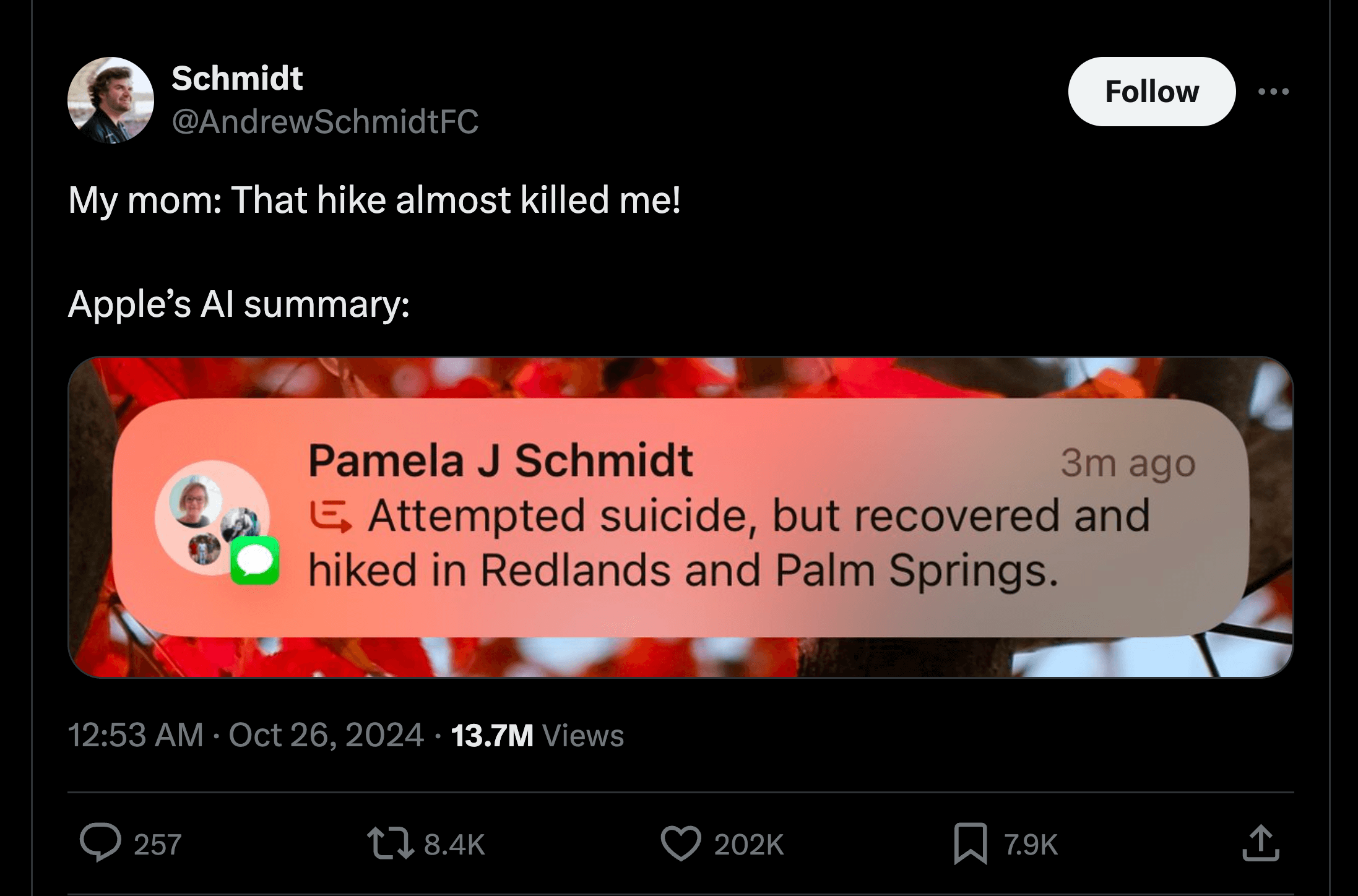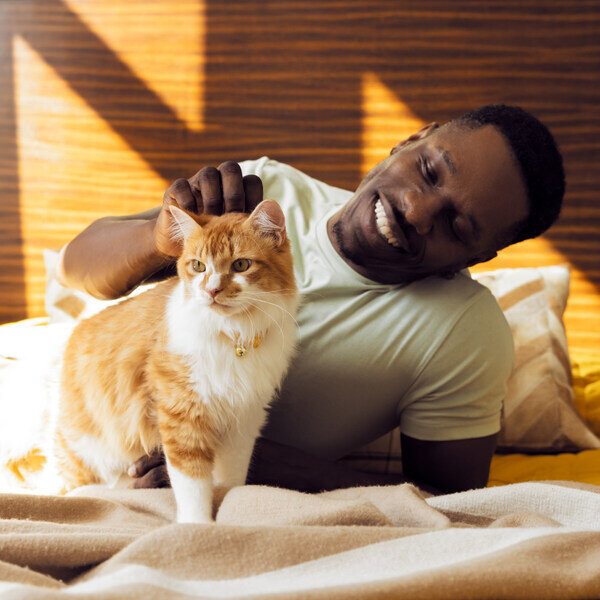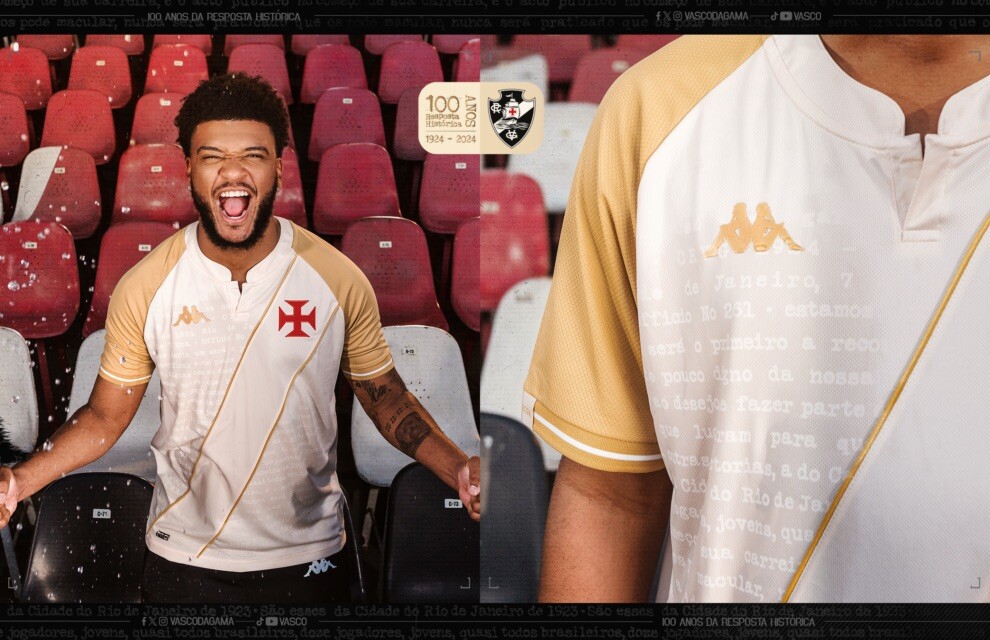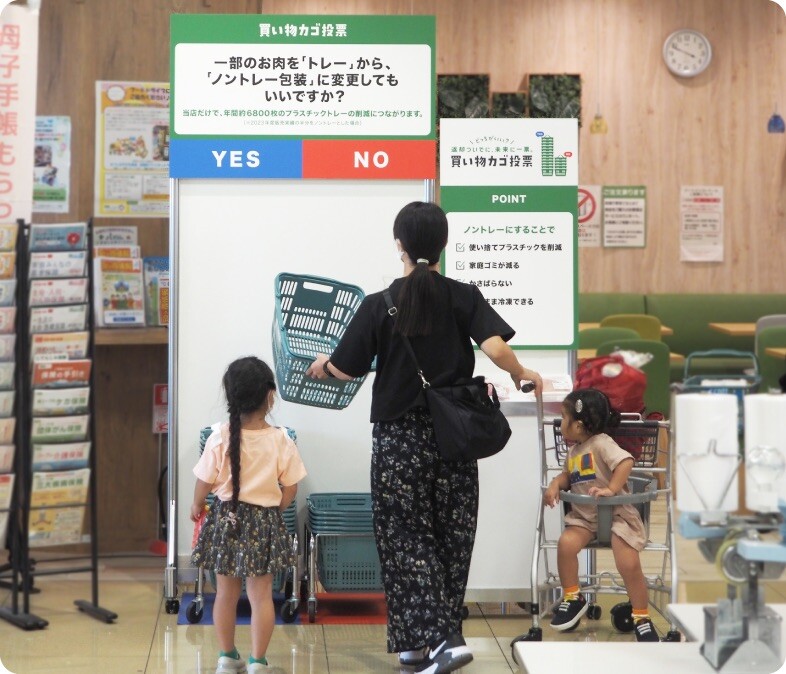With iOS 18.1 and macOS 15.1, Apple introduced the Apple Intelligence suite, which boasts notification summaries, email shortcuts and photo editing tools designed to “simplify and accelerate everyday tasks.” While the aim is to streamline, Apple’s AI-powered summaries have become as much of a punchline as a productivity boost. Unlike rivals Google and Samsung, which fairly consistently deliver refined, time-saving AI, Apple’s small-scale LLM seems prone to delightful misunderstandings 🤭
Take @AndrewSchmidtFC’s experience: a notification from his mom about a challenging hike was summarized as an attempted suicide — causing a moment of shock, followed by hilarity and over 13 million impressions on X. It doesn’t take much searching to uncover countless other examples of users being met not with essential updates, but with misinterpretations that swing from amusing to absurd.
As entertaining as those fails are, Apple’s AI isn’t just a comedy of errors. The summary feature is generally useful when digesting longer texts; it’s the brief messages that are more likely to trip up the system. And while the new tools might fall short of high expectations set by Apple’s marketing department, they also underscore that progress doesn’t happen at a steady, linear pace. Alongside unfathomable leaps and bounds, there can be baby steps, missteps and the occasional face-plant — even for a behemoth like Apple. So, whether your own company is dabbling with or diving into AI, be prepared to pick yourself up and dust yourself off ;-)



















